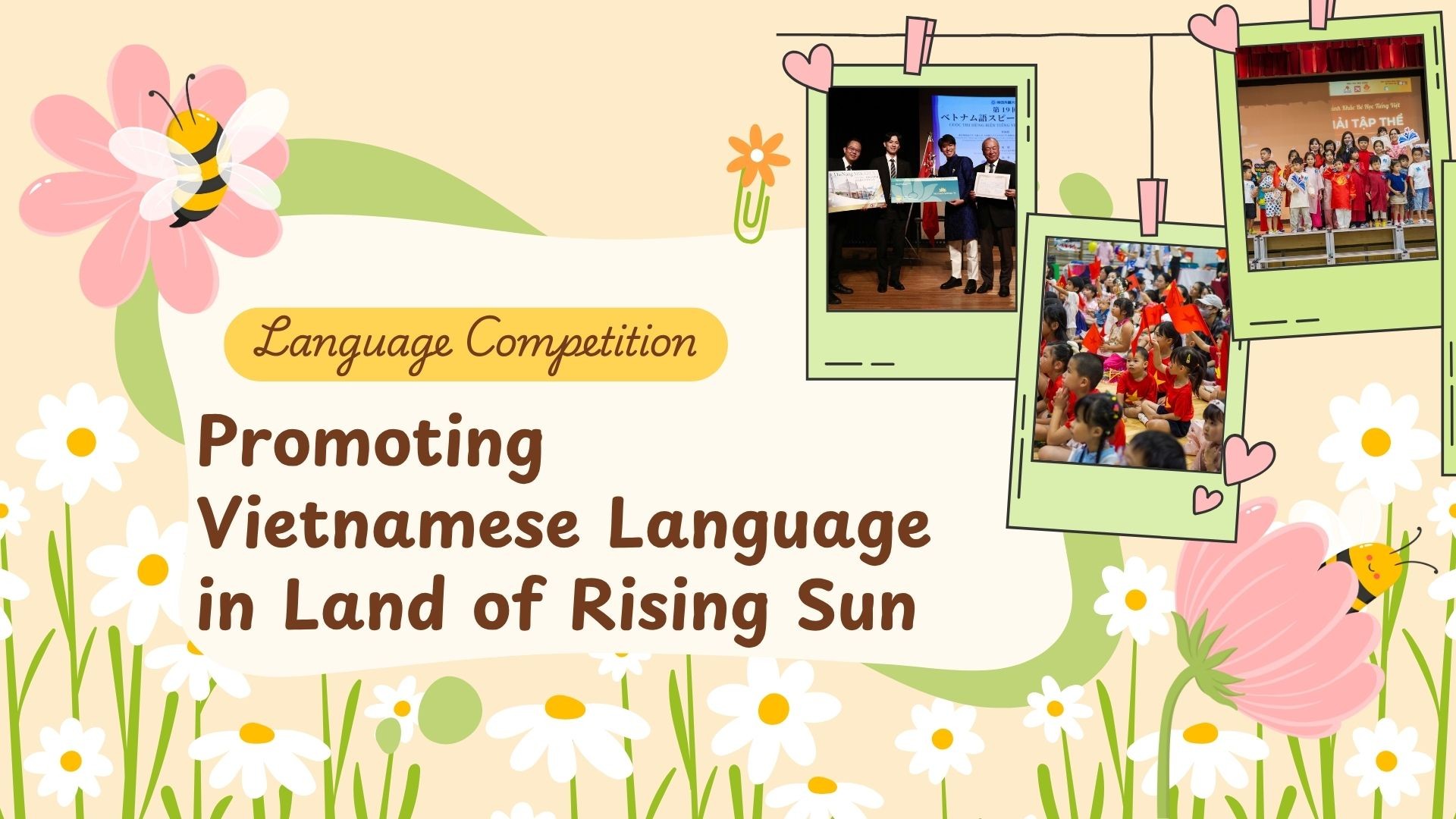 |
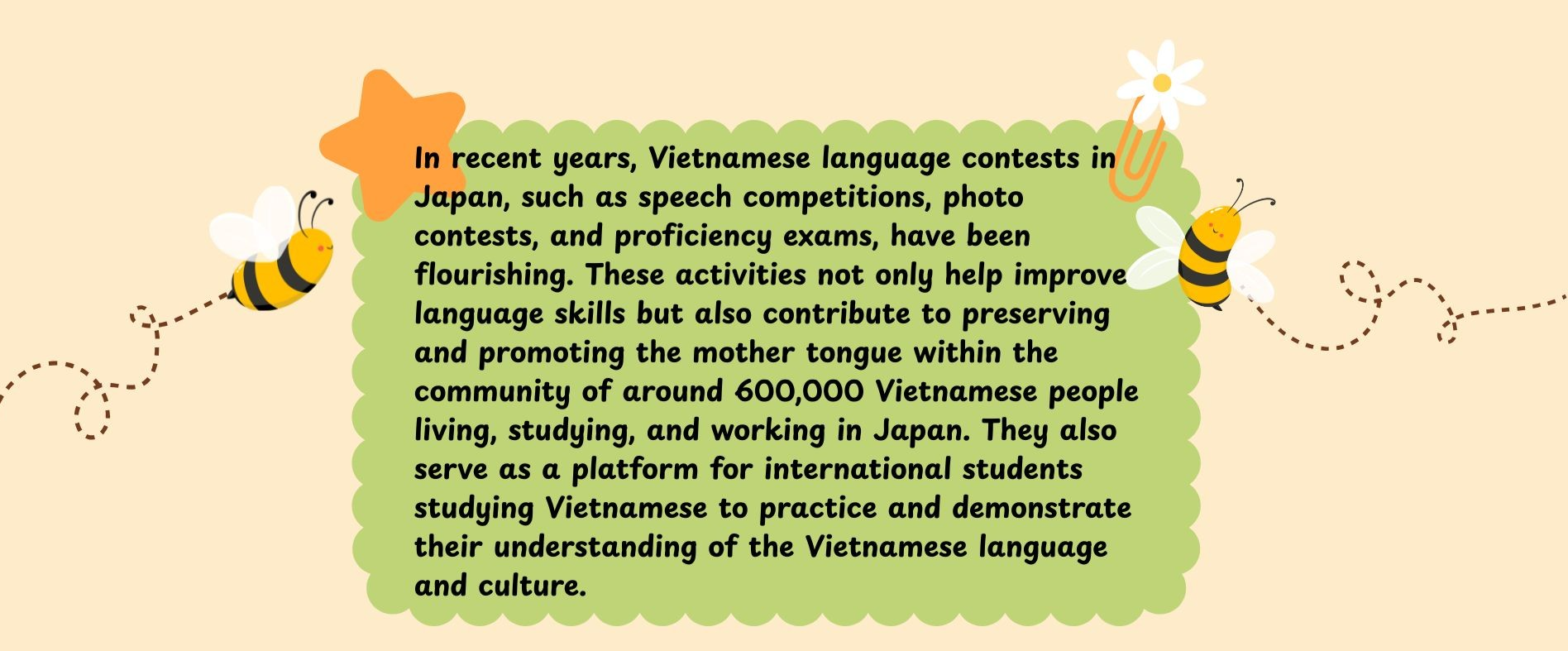 |
 |
|
"Mát mẻ trời xuân cảnh tốt tươi Thích tính thiếu nữ hé môi cười Non phơi vẻ gấm hoa chường mặt Ngọn gió xuân đưa mát cả người...". Unofficial translation: "The cool spring breeze, the joyful scene, A maiden smiles, her lips serene. Mountains bloom in brocade hue, Spring wind brings warmth anew..." These verses from “Ngam vinh” by poet Han Mac Tu echoed through the hall of Kanda University of International Studies in Chiba Prefecture, Japan, on an early November afternoon. Amid cheerful laughter and applause, contestants in the Vietnamese Speech Contest recited poetry, presented their methods for learning foreign languages, shared personal reflections on studying Vietnamese, expressed their feelings through the sounds of the T’rung (a traditional bamboo xylophone), and conveyed their affection for Vietnam. |
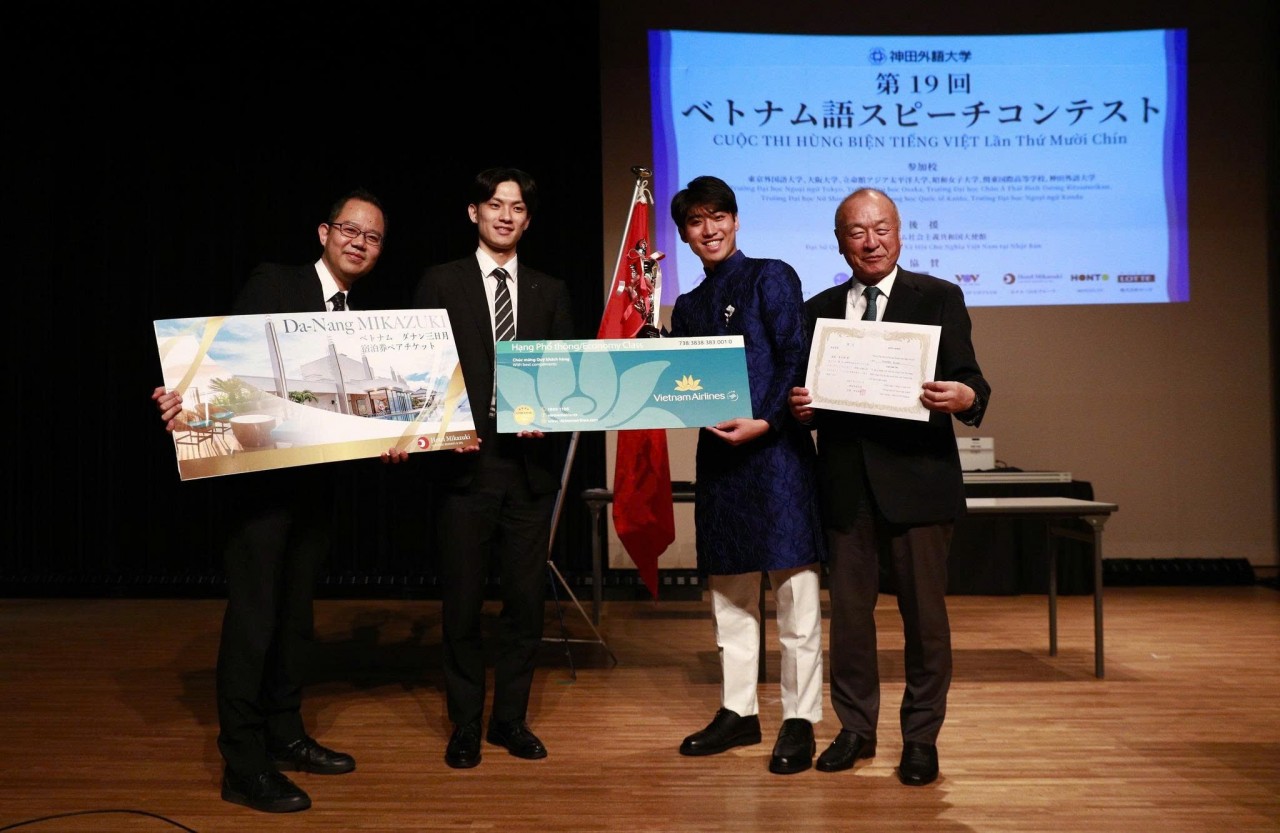 |
| The organizers present an award to contestant Nabu Kotaro (second from right), who won the Outstanding Performance Award at the 19th Vietnamese Speech Contest held at Kanda University of International Studies. |
|
The Vietnamese Speech Contest, now in its 19th year, is jointly organized by Kanda University of International Studies and other universities in Japan that offer Vietnamese language programs. The annual event aims to motivate learners, deepen their knowledge, and enhance practical Vietnamese language skills among Japanese students. In 2025, the contest attracted 18 participants from Kanda University of International Studies, Osaka University, Showa Women’s University, and Kanto Kokusai High School, among others. Contestants were divided into several categories: Group A for first-year university students or high schoolers; Group B for second-year students; Group C for those who have never studied abroad in Vietnam; Group D for those who have studied in Vietnam for more than six months; and Group E for contestants with one or both parents of Vietnamese origin. |
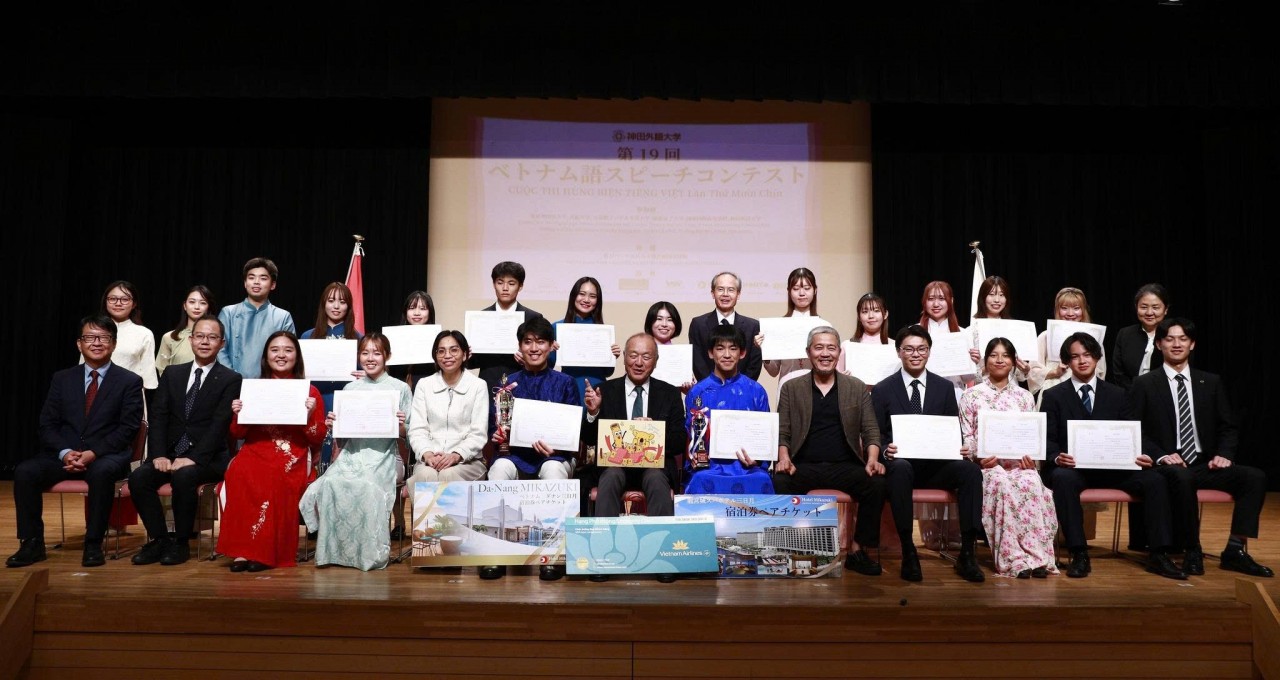 |
| The organizers of the 19th Vietnamese Speech Contest and the contestants pose for a commemorative photo. |
|
One participant, Nguyen Tran Phuong Chi, who moved to Japan with her family at the age of nine and is now an 11th grader at Kanto International High School, shared: “During the COVID-19 pandemic, I spent several years living with my grandparents in Vietnam and realized how hesitant I was in using Vietnamese. After returning to Japan, I decided to study the language seriously to nurture my love for it and to strengthen my bond with my family.” Meanwhile, Muto Saiyo, a second-year student at Tokyo University of Foreign Studies and winner of the Group B First Prize, said: “The hardest part of learning Vietnamese is pronunciation, since there are many sounds that don’t exist in Japanese. But I hope to master Vietnamese so I can use it in my future career, teaching Japanese in Vietnam.” |
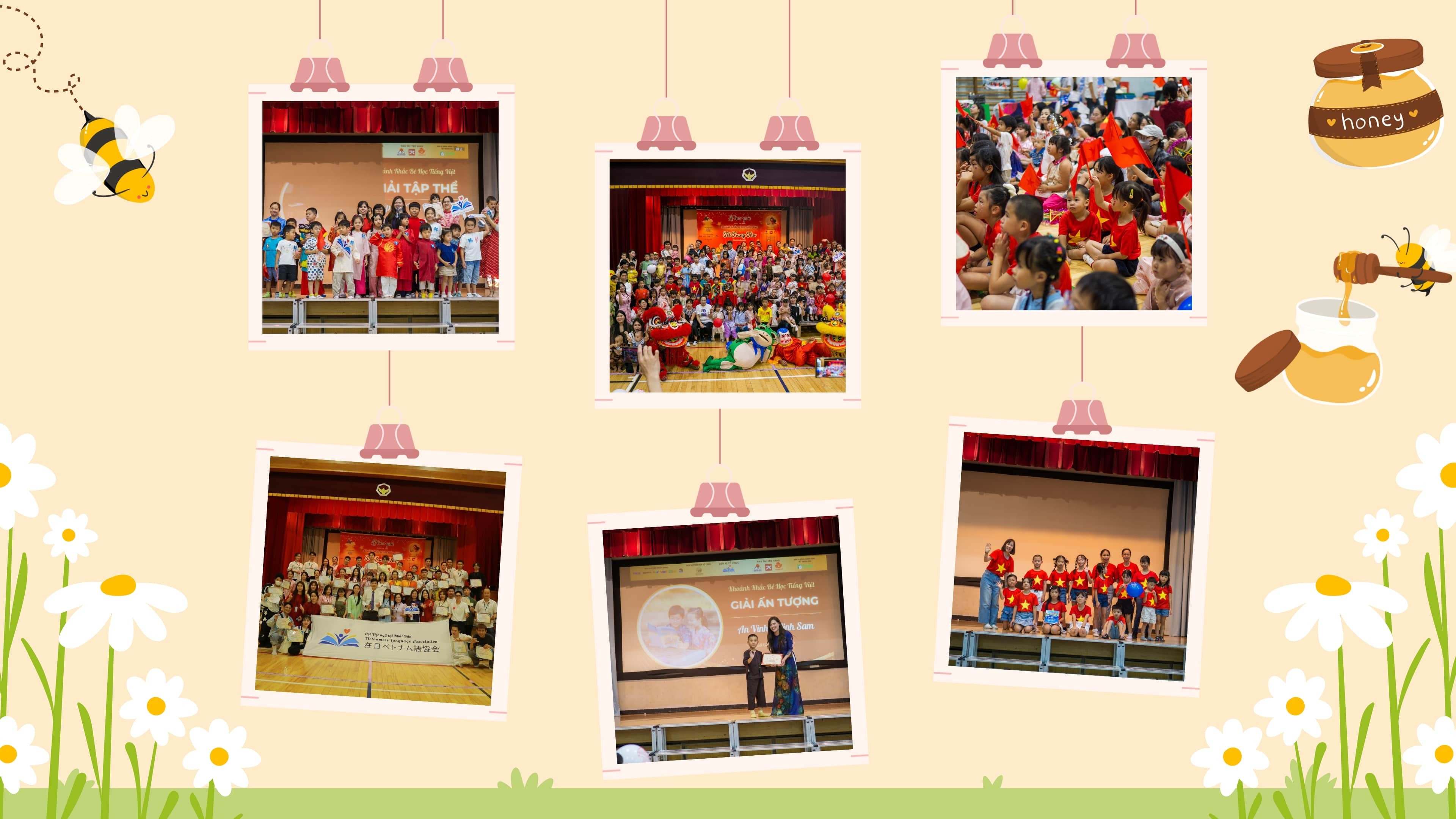 |
| Images from the Award Ceremony of the Photo Contest “Moments of Children Learning Vietnamese,” Held in Combination with the 2025 Mid-Autumn Festival Night by the Vietnamese Language Association in Japan on October 5, 2025 |
|
Vietnamese children in Japan also have their own language playgrounds. On October 5 in Tokyo, the Vietnamese Language Association in Japan held the award ceremony for the photo contest “Moments of Children Learning Vietnamese” in conjunction with the 2025 Mid-Autumn Festival Night. The event drew 63 photo entries and attracted about 600 Vietnamese children and their families. The contest, designed for children aged 3 to 15, captured heartwarming moments from their Vietnamese learning journey, writing their first words, reading fairy tales, or joyfully singing traditional Vietnamese folk songs. These images not only inspire love for the mother tongue but also allow children to experience their cultural heritage in Japan, forming a foundation for preserving Vietnamese identity within the community. |
 |
|
Another highlight was the 8th Vietnamese Proficiency Test, held at Osaka University on February 9, 2025, attracting candidates from 20 prefectures across Japan. The test featured three levels, A, B, and C, with a total of 165 registrations (100 for Level A, 58 for Level B, and 7 for Level C). According to the organizers, most participants took part because they either worked in fields related to Vietnamese or had Vietnamese parents. Many others learned Vietnamese because they had Vietnamese friends, had visited Vietnam, and developed affection for its people, culture, and especially its cuisine. Yanagichi Taiyo, 70, the oldest contestant, shared that he frequently travels to Vietnam due to having many Vietnamese friends. He expressed his deep fondness for life in Vietnam, saying that his goal in learning the language is to better integrate into a country where he hopes to live for a long time. |
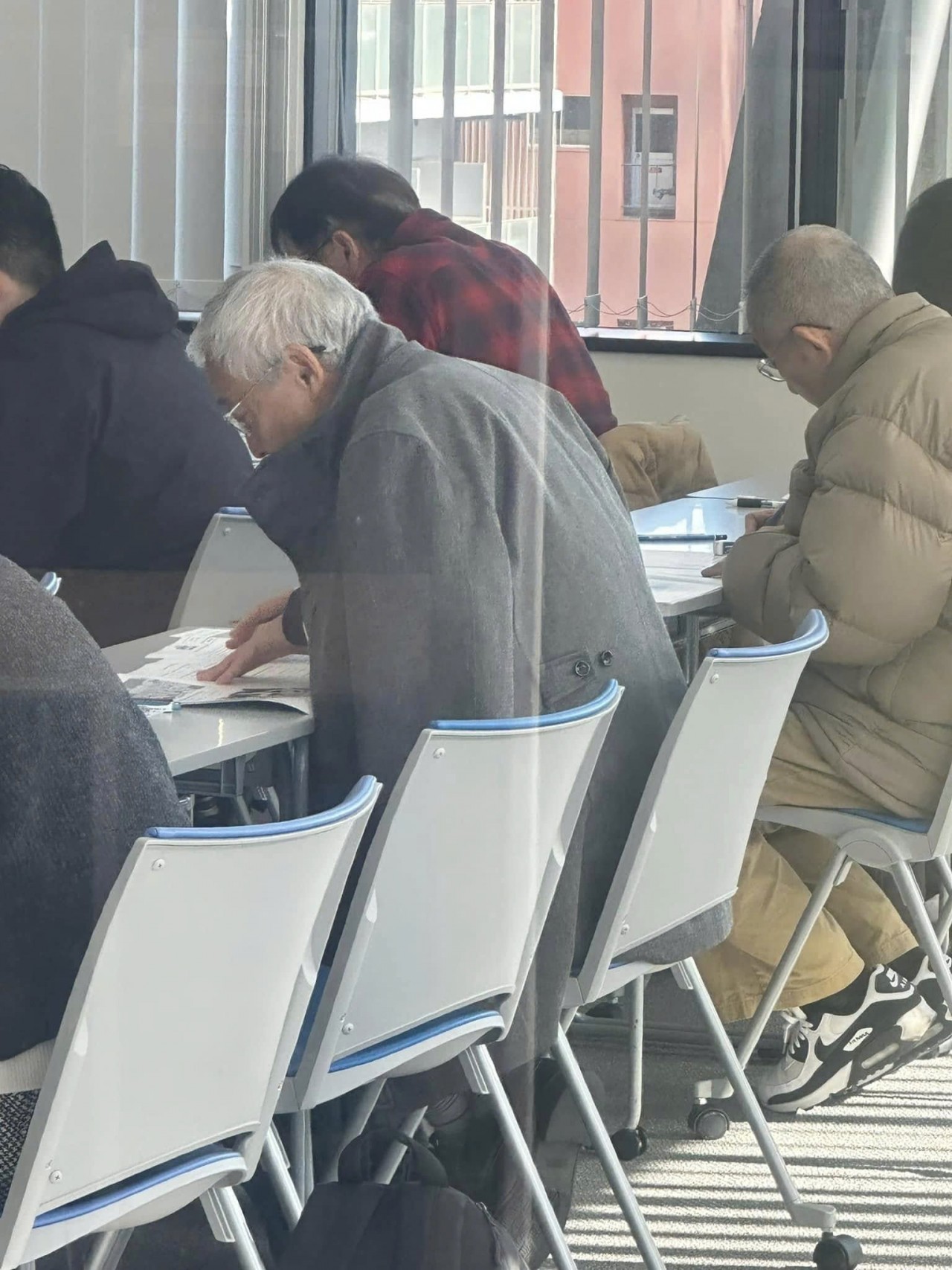 |
| An elderly contestant takes part in the 8th Vietnamese Proficiency Test organized by Osaka University (Japan) on February 9, 2025. |
|
Professor Shimizu Masaki, Head of the Vietnamese Language Department, Faculty of Foreign Studies, Osaka University, and Chairman of the Examination Council, said the test has been held annually since 2020 to promote the learning of Vietnamese in Japan. He added that it is expected to receive official recognition from Vietnam’s Ministry of Education and Training in 2026. Iwai Misaki, Head of the Southeast Asia Department, Faculty of Asian Languages, Kanda University of International Studies, noted that young Japanese people are showing increasing interest in learning Vietnamese. In the past, many studied Vietnamese to seek job opportunities in Vietnam. Today, however, there are numerous opportunities to use Vietnamese even within Japan, such as in interpretation or in supporting cultural and educational exchange activities between the two countries. |
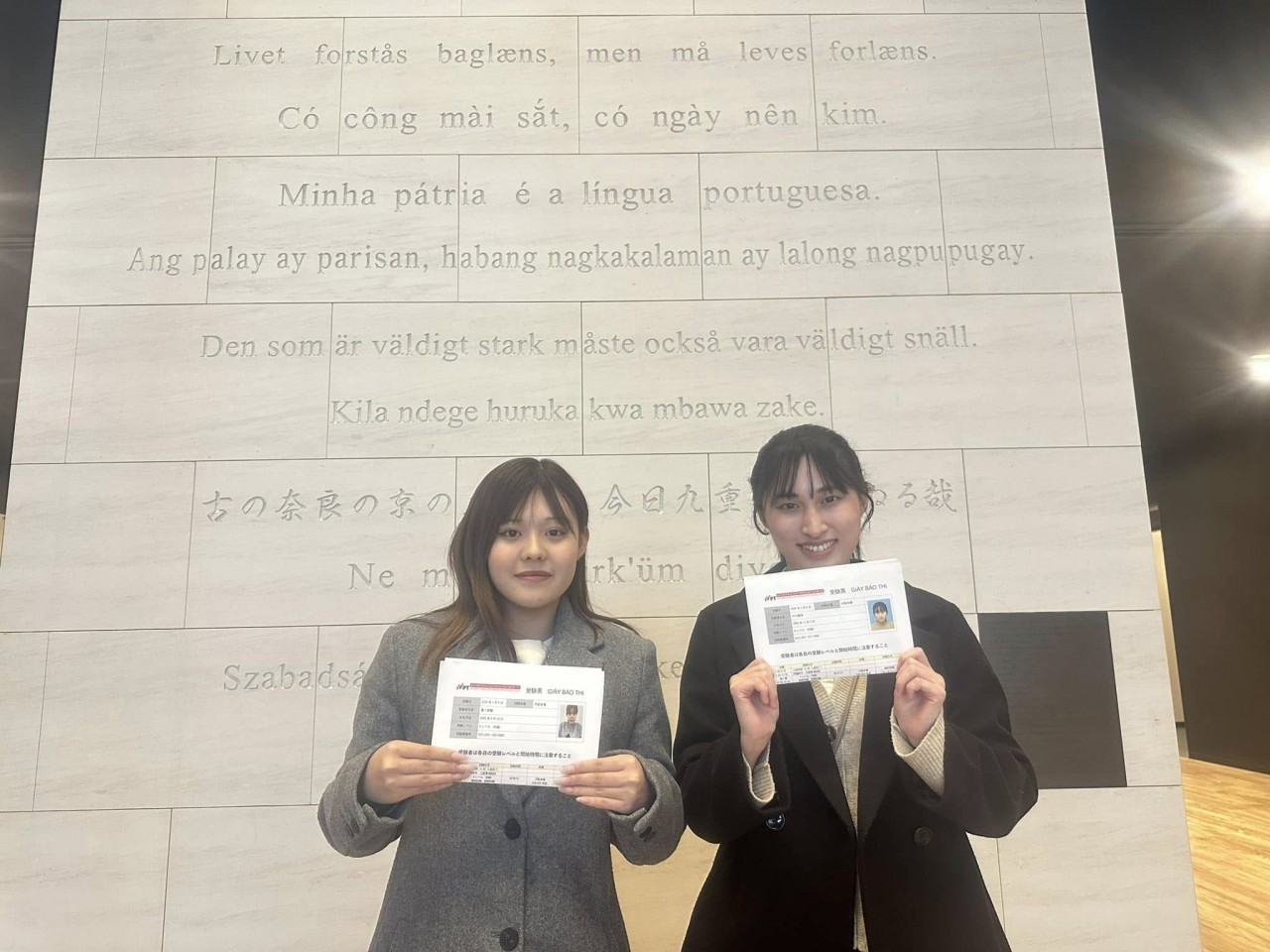 |
| Two contestants participate in the 8th Vietnamese Proficiency Test organized by Osaka University (Japan) on February 9, 2025. |
|
According to statistics from the Vietnamese Embassy in Japan, about 600,000 Vietnamese are currently living, studying, and working in 47 prefectures across Japan. In this context, maintaining and developing the mother tongue presents both challenges and opportunities for younger generations to stay connected with their cultural roots. Many Vietnamese families in Japan actively preserve the language through extracurricular classes, traditional cultural events, and especially language competitions such as speech contests, photo contests, and proficiency exams. These activities not only strengthen language skills but also nurture love for the homeland, helping children become cultural bridges between Vietnam and Japan. Kitagawa Toshifumi, Vice Chairman of the Tokyo City Federation, expressed his hope that Vietnamese children who master both their mother tongue and Japanese will become strong connectors between the two cultures. |
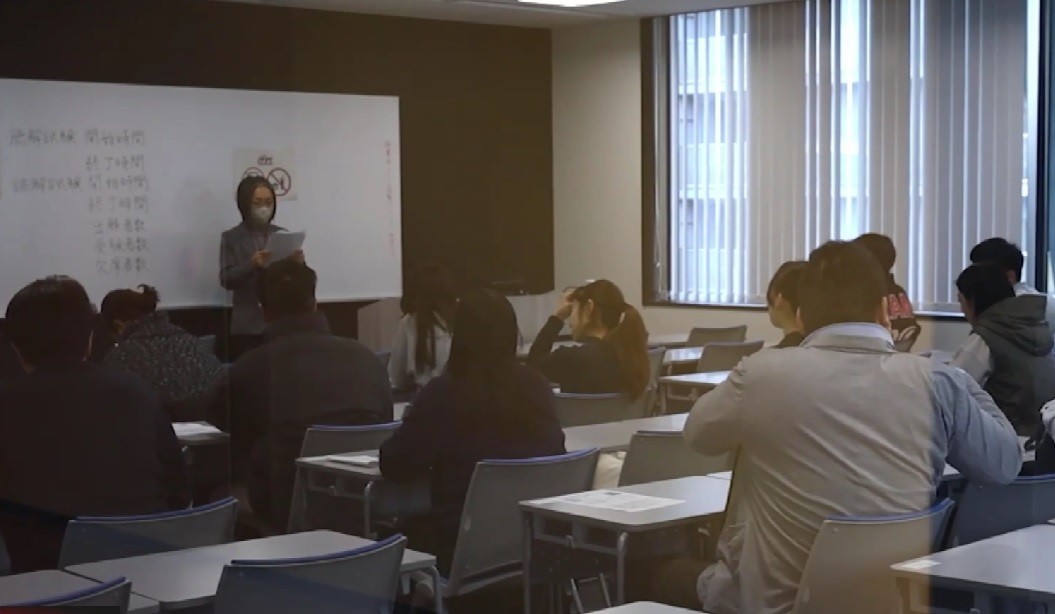 |
| The 8th Vietnamese proficiency test at Osaka University |
|
Vu Thi Lien Huong, First Secretary and Head of the Education Department at the Vietnamese Embassy in Japan, noted that relations between the two countries have continued to flourish. Many young Vietnamese who admire Japan’s people and culture have studied Japanese and pursued education in Japanese institutions. Conversely, the number of young Japanese people who are interested in Vietnam, have affection for the country, and choose to study the Vietnamese language has also been steadily increasing. She emphasized that such competitions provide valuable opportunities for young people to gain meaningful experience on their paths of study and career development. The Vietnamese language not only lives on through spoken words and poetic verses but also serves as a bond that connects the community, nurtures family affection, and affirms the cultural values of Vietnam in the heart of Japan. These contests, classes, and exchange activities demonstrate that Vietnamese continues to thrive, vibrant, dynamic, and full of life, contributing to the preservation of cultural identity among young Vietnamese abroad while strengthening the friendship between the peoples of Vietnam and Japan. |
|
By Phan Anh Graphics: Mai Anh Published on: November 12, 2025 |